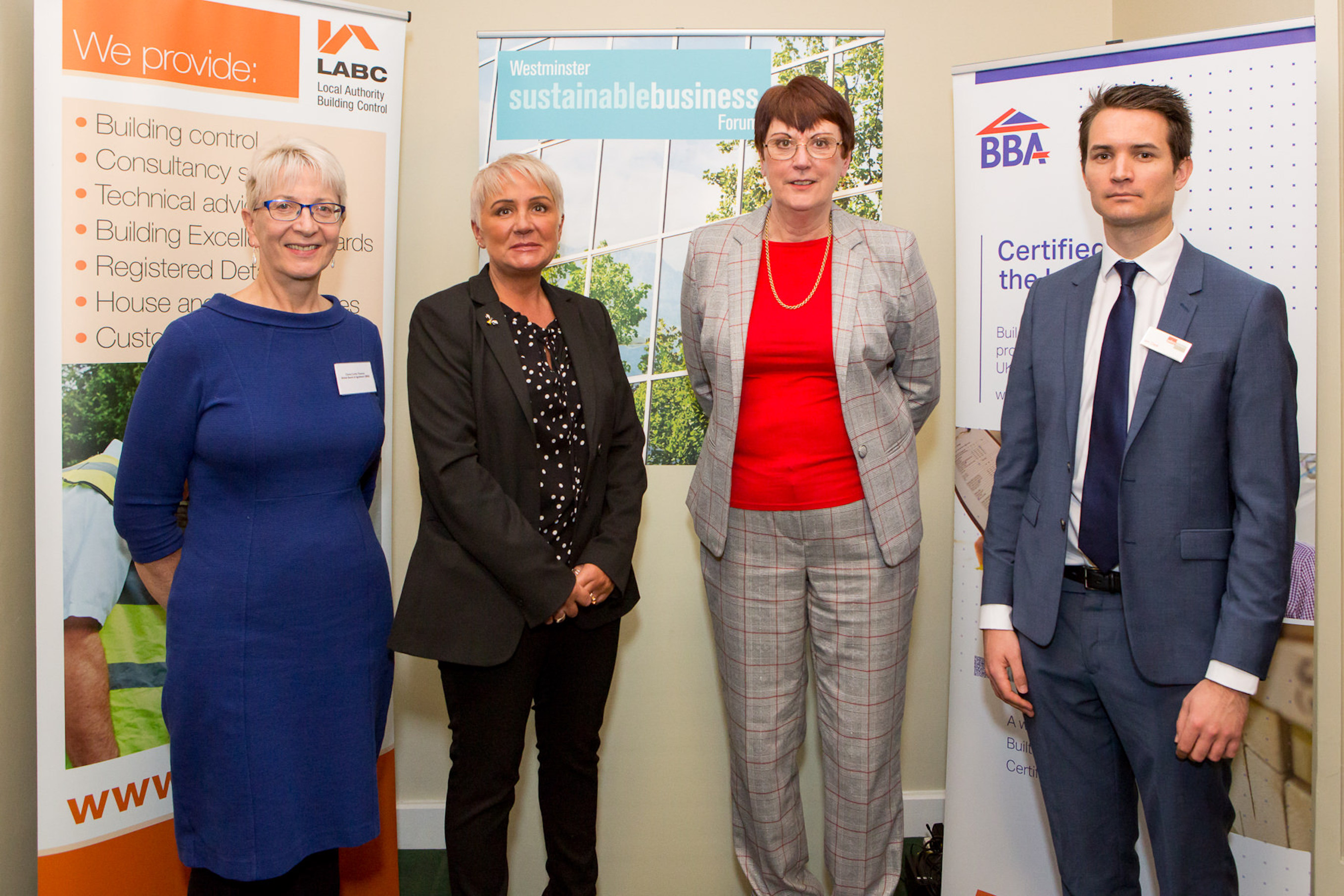
100% Hackitt — an industry initiative to encourage the Government to deliver all of the recommendations contained within Dame Judith’s report — was launched in Westminster by Local Authority Building Control (LABC) and the British Board of Agrément (BBA).
These two influential organisations have united to bring focus to industry calls for a full adoption of Dame Judith’s Independent Review of Building Regulations and Fire Safety; together they are launching a new website www.100-hackitt.co.uk, producing ‘pledge cards’ for supporters to sign up to the initiative and pushing for an Early Day Motion debate in the House of Commons.
Their message is clear and unequivocal — the Hackitt review recommendations must be implemented in full.
Dame Judith attended the launch, delivering a keynote speech to a large number of cross-party politicians, policy advisors and industry body representatives, telling them there was ‘massive need’ for culture change throughout the industry, with responsibilities clearly defined at every stage of a building’s lifecycle. “Much remains to be done to bring the construction industry up to the standards of other industries in terms of accountability, transparency and record keeping,” Dame Judith said. “Don’t tinker, don’t tweak, it has to be fundamental.”
Pictured above from left to right is BBA Chief Executive Claire Curtis-Thomas, LABC Deputy Managing Director Lorna Stimpson, Dame Judith Hackitt and Jim Clark, Policy Connect.
Claire Curtis-Thomas, BBA Chief Executive, described the 100% Hackitt initiative as ‘the best thing for the British construction industry in a generation’, added: “The BBA is backing this initiative as strongly as we possibly can because we want to see bad practices in the industry eliminated and protection for the public and companies that are fully committed to high standards of delivery.”
Her comments were echoed by Paul Everall, LABC Chief Executive: “The LABC and the BBA share the same outlook and are determined to make a difference in our industry. But we’re not waiting, we’re getting on with building a safer future together – right now. The 100% Hackitt initiative is a space for everyone who wants to see systemic change in the construction industry and I hope the whole industry gets behind it.”
The launch event was facilitated by cross-party think tank Policy Connect through its parliamentary forum for the built environment, the Westminster Sustainable Business Forum. The initiative has the support of senior figures across the construction and fire safety sector including the Fire Sector Federation, whose Executive Officer Dennis Davis said: “We are backing the 100% Hackitt initiative because we need a mandatory, controlled system that allows us to balance what we want — innovation, good buildings, new ideas, growth in our economy — with sensible restraint that ensures short cuts and economies aren’t made and shows that people are competent, resulting in safe building for those who occupy them.”
Jonathan Shaw, Chief Executive of Policy Connect, said: “The Hackitt review represents a once in a generation opportunity to recast the building system and start to build safer, better designed homes. We will discuss how the review can bring about positive change in the construction industry, what still remains to be done and where the Hackitt review could have gone further so that we can encourage the industry to push for change.”
100% Hackitt unites those who wish to see cultural change in the construction industry, promoting safety and public trust via a forum which provides on-going opportunities to discuss cross-discipline issues whilst keeping pressure on Ministers to adopt all of the Hackitt review recommendations.
“Dame Judith’s review of Building Regulations and fire safety showed systemic change is required within our industry,” added Claire Curtis-Thomas. “Her report came with a warning that cherry-picking recommendations would compromise their overall effectiveness and it is this ‘pick and mix’ approach that the BBA and LABC are urging the government to avoid by accepting the recommendations in full.
“The construction industry has overwhelmingly taken on board her views and aspirations and wants to drive change – shifts in practices and working relationships have already been voluntarily introduced by many – but we need government backing to ensure this happens across the board,” Claire continued. “Many of the recommendations fall to government rather than industry. We are doing our bit and it now needs to do its bit and if this needs new regulation or even legislation it will have our backing and the backing of those who recognise that business as usual is not an option any of us want to consider.”








